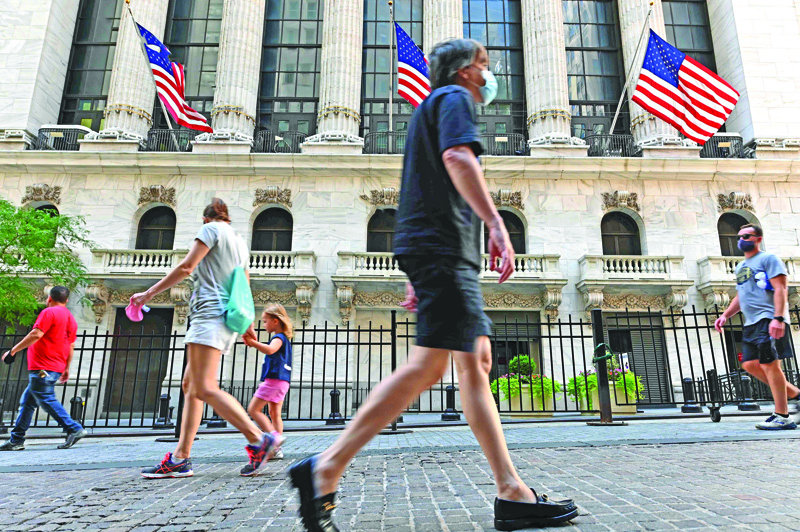
LONDON: The dollar's bounce extended yesterday as investors trimmed bets against the greenback and sold the euro on concerns that the European Central Bank was worried about its rise. The surge has lifted the greenback about 1.3% above the 28-month low it hit against a basket of currencies on Tuesday. Few analysts expect it to hold for too long, but the dollar gained broadly in Asia and, if sustained, this would be the first time it has climbed three sessions in a row since May.
After the euro touched $1.20 earlier this week, worries brewed in the market that the rise had come too fast and strong for the ECB's liking. Fears have intensified after a Financial Times report confirming those concerns. ECB policymakers reportedly warned that if the euro keeps appreciating it will weigh on exports, drag down prices and intensify pressure for more monetary stimulus. That followed remarks on Tuesday from ECB chief economist Philip Lane, who said the exchange rate "does matter" for monetary policy.
"Overall the comments suggest that an immediate policy response from the ECB to help weaken the euro appears unlikely, and they will rely more on jawboning to dampen euro strength for now," said Lee Hardman, currency analyst at MUFG. A speech from ECB board member Isabel Schnabel at 1500 GMT will be closely watched for any comments on the currency. The euro was last down 0.4% at $1.1806, having slipped earlier in the session to a one-week low of $1.1789.
The dollar was up 0.3% against a basket of currencies at 92.96. For about a fortnight now the dollar has been fighting to hold the line after dropping 10% from a March peak. As traders start to temper stretched bets on the euro, it could post its best week on the common currency in four months.
A stronger dollar pushed the British pound down 0.5% to $1.3287 and the Norwegian crown down 0.4% to 8.8750. The outlier was the Japanese yen, which stood steady at 106.19 against the dollar. Traders were watching for the final August Markit euro zone composite Purchasing Managers' Index (PMI) at 0800 GMT, which economists polled by Reuters expect it to be confirmed at 51.6. - Reuters

